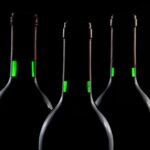If you care about sustainability and the environment, you may want to consider drinking wines from Chile.
Chile has the most sustainable wine industry in the world, with nearly all of the wines it produces falling under some category of environmental or social responsibility. Producers of 80% of the total Chilean wines on the shelves honor the Wines of Chile Sustainability Code, and the wines are identified as “Certified Sustainable Wine of Chile,” usually alongside another organic or biodynamic certifications.
It’s good business. Chile’s water resources are hard to come by, so reducing water use is as much a necessity as it is ethical. And Chile’s gorgeous climate makes pests and diseases almost a non-issue. Cutting or eliminating the use of chemical controls is not so hard a pull.
For all of its wonderful wine and great value, though, Chile also is a global also-ran in the scheme of things. A story and way to stand out resonate with consumers. People care more than ever about what they eat and drink and the impact it has on the environment.
In much of Chile, the heat would render pinot noir into an overripe fruit bomb. But the Casablanca Valley is cool and better known for standout white wines. Pinot noir excels in cooler areas, so this one is an eye-catcher. Montsecano “Refugio” 2018 Pinot Noir Casablanca Valley smells of leather and dried flowers. This light-bodied wine has flavors of cranberry and earth. $26. ♦♦♦♦ 1/2
Made from organically grown grapes, Tarapacá Gran Reserva 2018 Valle de Maipo Red Wine Blend smells of black fruit with a medium body and has flavors of black raspberry and anise. This blend is not available in Pennsylvania, but you can get the same effect from its cabernet sauvignon and carmenere, which are available here. $18. ♦♦♦♦
The big red in this lineup comes from Concha Y Toro Gran Reserva 2018 Cabernet Sauvignon, which smells of black pepper and raspberry. It offers sweet, ripe cherry notes with a strong herbal and eucalyptus edge. $17. ♦♦♦ 1/2
Environmentally, there’s a drawback to the notion of buying such products. Some point out the futility of buying an organic product shipped thousands of miles by virtue of fossil fuels. But that’s too much calculus between me and fine wine.
GRADE: Exceptional ♦♦♦♦♦, Above average ♦♦♦♦, Good ♦♦♦, Below average ♦♦, Poor ♦

David Falchek executive director of the American Wine Society, reviews wines each week. Contact: dfalchek@gmail.com




